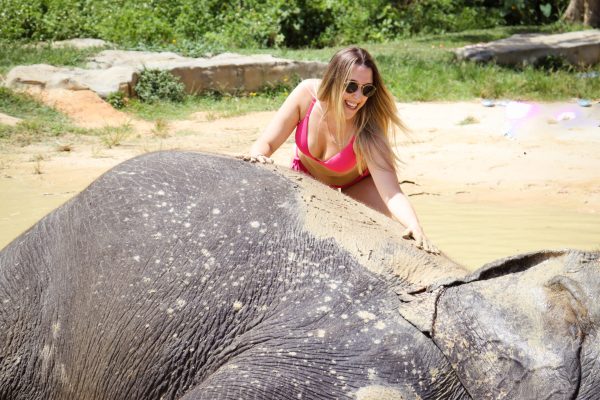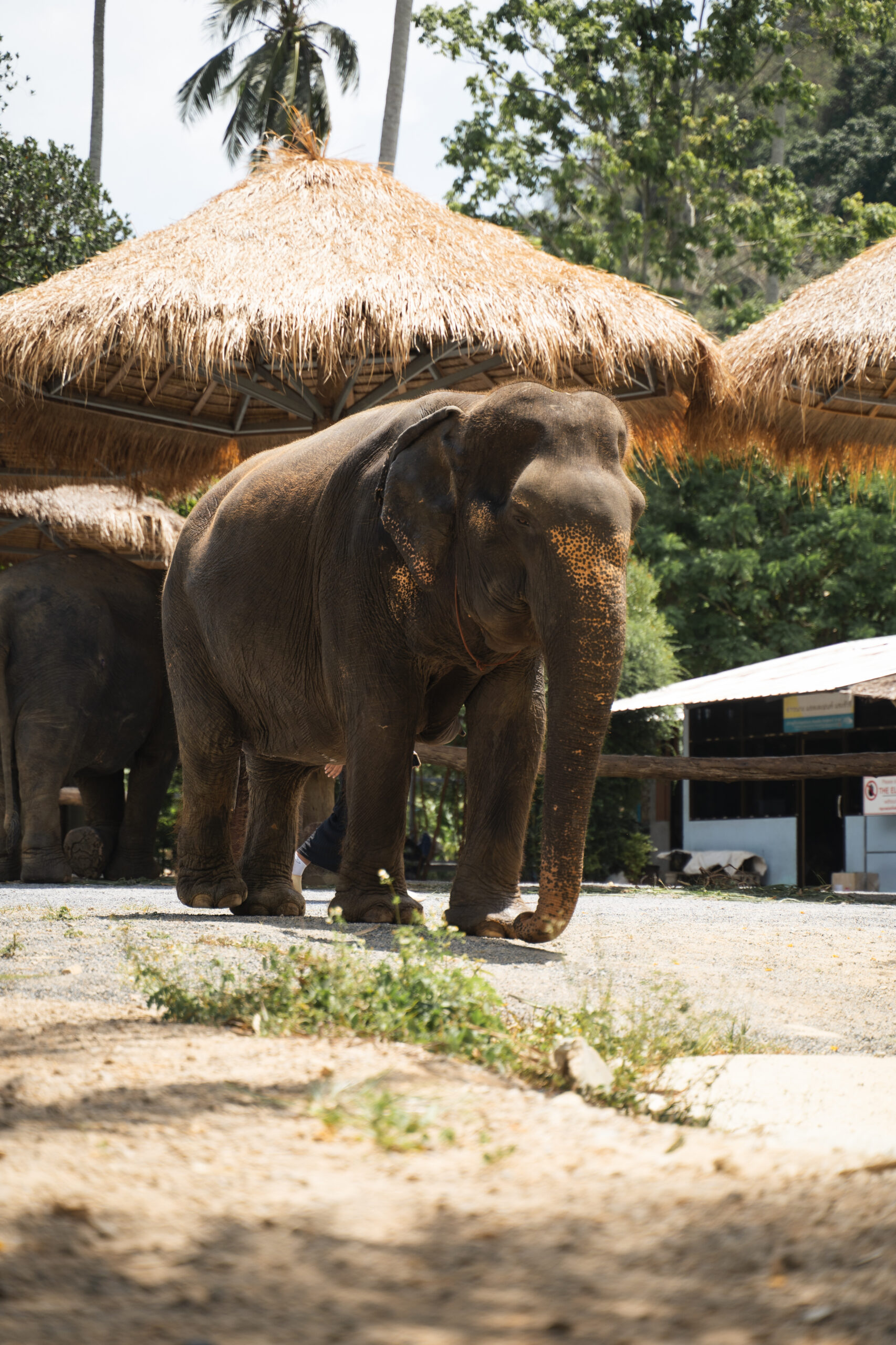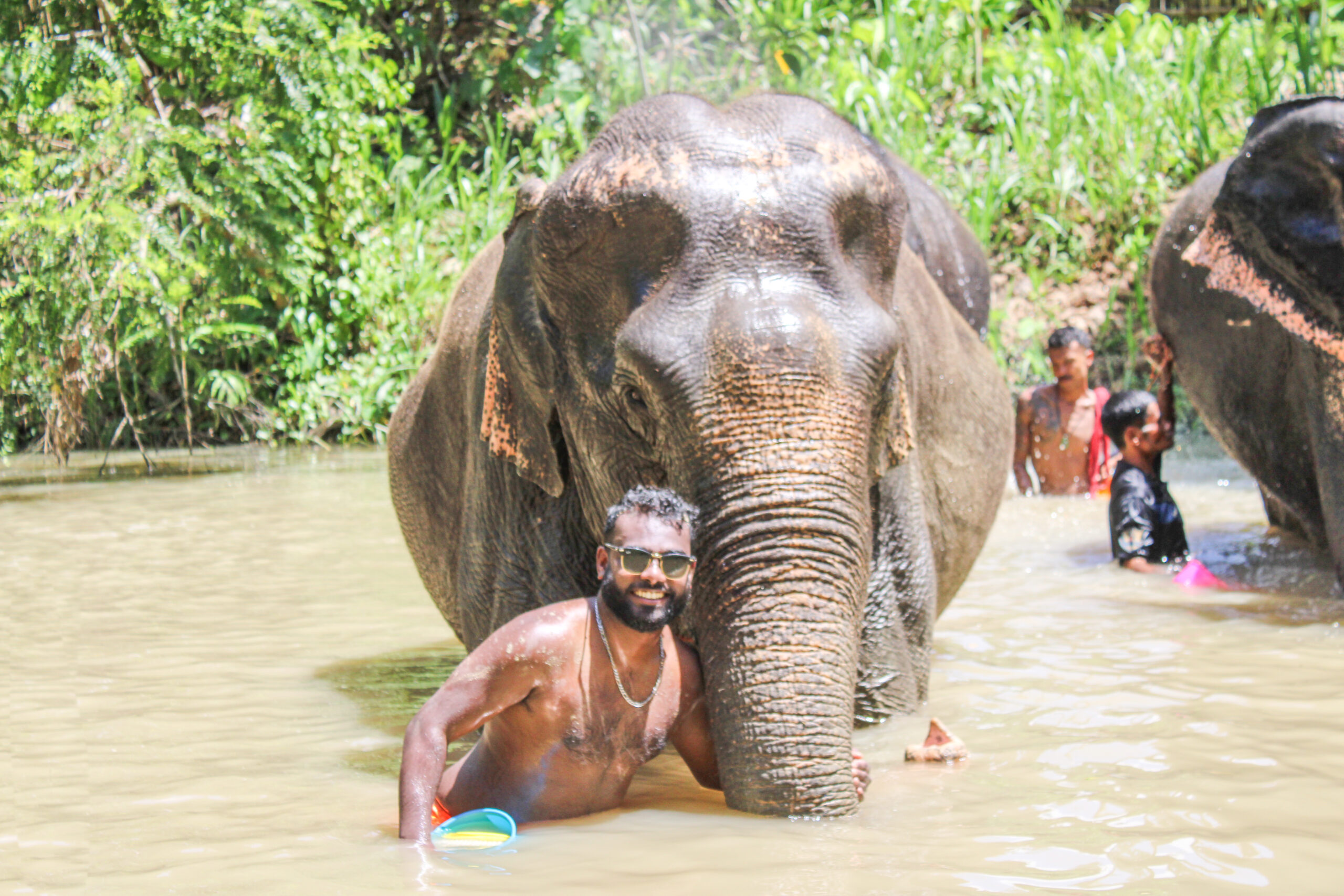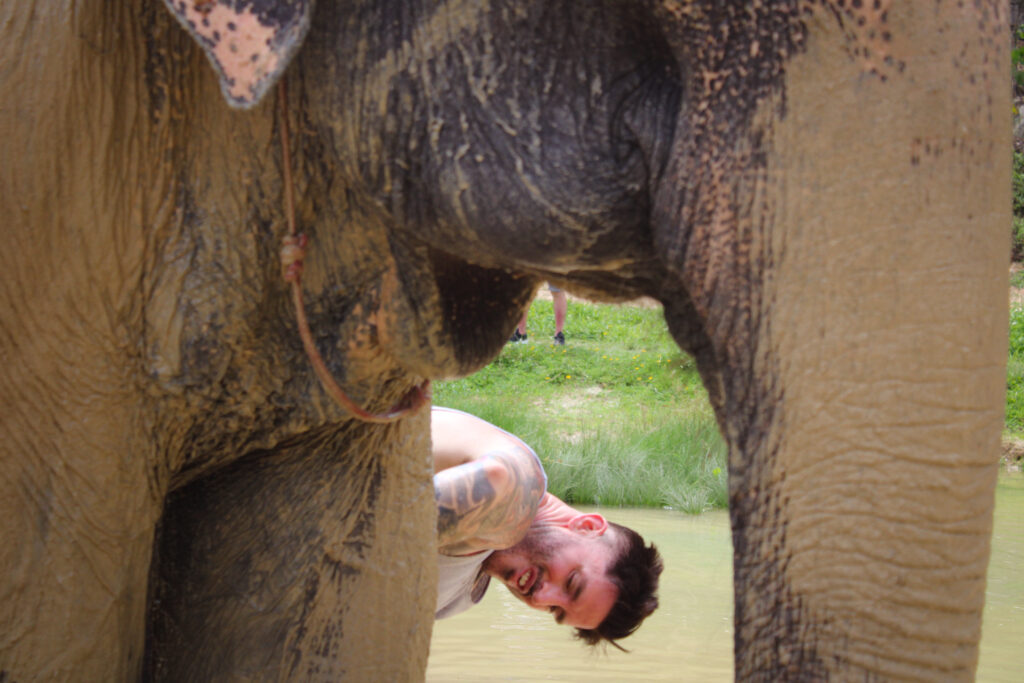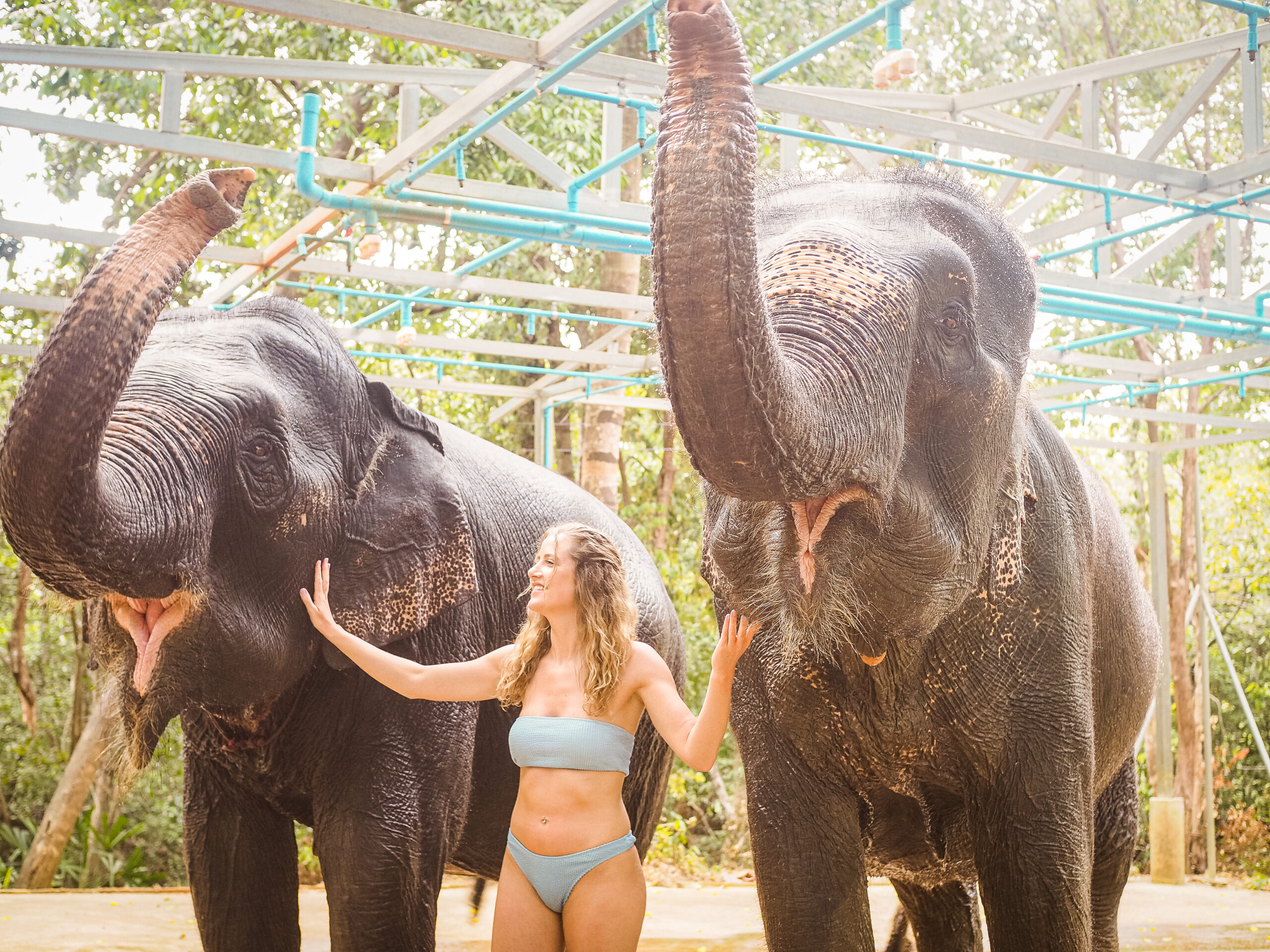
Elephants, with their remarkable intelligence, gentle demeanor, and sheer magnificence, have long captivated the hearts and minds of people worldwide. In Thailand, the bond between humans and elephants runs deep, reflected in ancient traditions such as elephant washing. In this comprehensive guide, we delve into the art and science of wash elephants, exploring their cultural significance, scientific benefits, conservation implications, and much more.
Understanding the Majesty of Elephants
Elephants are not just iconic symbols of Thailand; they are revered creatures deeply ingrained in the country’s culture, history, and spirituality. Thai people have long viewed elephants as sacred animals, embodying traits of wisdom, strength, and loyalty. To truly appreciate the practice of washing elephants, it’s essential to understand the profound significance these majestic beings hold in Thai society.
The Tradition of Wash Elephants: A Journey Through Time
The tradition of Wash Elephants traces its roots back centuries, intertwining with Thailand’s rich tapestry of folklore, mythology, and everyday life. Historically, elephants played crucial roles in agriculture, transportation, and warfare, earning them a revered status among the Thai people. The act of bathing elephants not only served practical purposes, such as cleaning and cooling the animals, but also carried symbolic meaning, representing purification, renewal, and respect for nature.
The Scientific Benefits of Wash Elephants
Beyond its cultural and symbolic significance, Wash Elephants offers numerous tangible benefits for the animals’ health and well-being. From a scientific perspective, bathing serves as a form of hygienic maintenance, helping to remove dirt, mud, and parasites from the elephant’s skin and coat. Additionally, the cooling effect of water provides relief from the sweltering tropical heat, preventing overheating and dehydration, particularly vital for elephants living in hot climates like Thailand.
Ethical Considerations in Elephant Tourism
As the popularity of elephant tourism has grown, so too have concerns about the ethical implications of interacting with these animals. While Wash Elephants can be a deeply enriching experience for both visitors and elephants alike, it’s essential to prioritize ethical practices to ensure the well-being and dignity of the animals involved. Responsible elephant tourism operators, such as the Krabi Elephant Shelter, place a strong emphasis on animal welfare, conservation, and education, offering visitors an opportunity to engage with elephants respectfully and sustainably.
Conservation Through Community Engagement
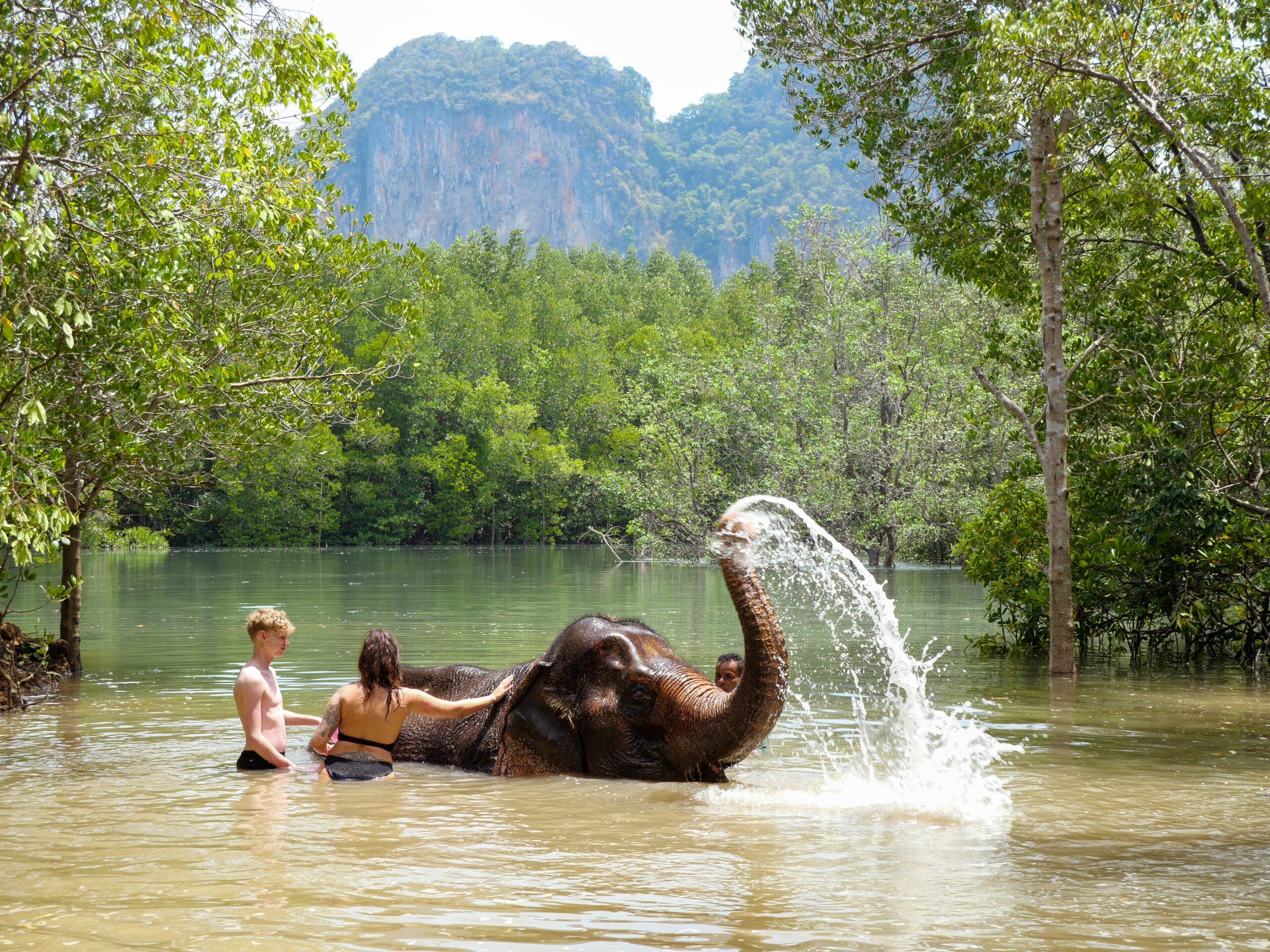
Elephant tourism can play a significant role in wildlife conservation and habitat protection when managed responsibly and ethically. By supporting sanctuaries and shelters that prioritize the welfare of elephants and engage in community outreach and conservation efforts, visitors contribute directly to the preservation of these magnificent creatures and their natural environments. At Krabi Elephant Shelter, conservation is not just a buzzword; it’s a fundamental principle guiding every aspect of their operation, from habitat preservation and rehabilitation to educational initiatives aimed at raising awareness about the importance of elephant conservation.
The Joy of Elephant Interaction: Wash Elephants
For many visitors, the opportunity to interact with elephants goes beyond a mere tourist activity; it’s a transformative experience that fosters a profound connection with nature and a deeper appreciation for the interconnectedness of all living beings. Whether it’s the sheer delight of scrubbing an elephant’s back or the quiet moments of reflection spent observing these gentle giants in their natural habitat, Wash Elephants at Krabi Elephant Shelter offers a unique window into the beauty and complexity of the natural world.
Nurturing a Culture of Compassion and Respect
At its core, the practice of Wash Elephants embodies principles of compassion, empathy, and respect for all living creatures. By fostering a culture of kindness and understanding, elephant tourism can serve as a powerful tool for promoting harmony between humans and animals and fostering a sense of stewardship for the planet. Through thoughtful engagement and mindful interaction, visitors can not only create unforgettable memories but also become advocates for positive change in the realm of wildlife conservation and animal welfare.
The Future of Elephant Tourism: Towards a Sustainable Paradigm
As we look ahead to the future of elephant tourism, it’s clear that sustainability and ethical considerations must remain at the forefront of industry practices. By embracing a holistic approach that prioritizes the well-being of elephants, respects local communities, and promotes environmental stewardship, we can create a more sustainable and equitable future for both humans and animals alike. With initiatives like Wash Elephants at Krabi Elephant Shelter leading the way, the potential for meaningful, responsible elephant tourism is boundless, offering a glimpse into a future where humans and elephants coexist in harmony and mutual respect.
From Tourists to Ambassadors: Empowering Change Through Education
Education lies at the heart of effective conservation efforts, empowering individuals to make informed choices and take action to protect the natural world. Through immersive experiences like Wash Elephants, visitors not only gain a deeper understanding of these remarkable animals but also become ambassadors for change in their communities. By sharing their experiences, advocating for ethical tourism practices, and supporting conservation initiatives, they amplify the impact of their visit, inspiring others to join the fight to safeguard our planet’s biodiversity for generations to come.
Tips for Wash Elephants Responsibly
While Wash Elephants is an exhilarating experience, it’s essential to approach it with care and respect for these magnificent animals. Here are some tips to ensure that your Wash Elephants adventure is both enjoyable and ethical:
- Listen to the Experts: Follow the guidance of experienced elephant caretakers who will provide instructions on how to interact with the elephants safely and respectfully.
- Use Gentle Techniques: When washing the elephants, use gentle motions and avoid applying excessive pressure. Remember, the goal is to provide a relaxing and enjoyable experience for the elephants.
- Respect Personal Space: Be mindful of the elephants’ personal space and avoid crowding or overwhelming them. Allow them to approach you at their own pace and comfort level.
- Stay Environmentally Conscious: Use eco-friendly and biodegradable soaps and shampoos to minimize environmental impact and ensure the elephants’ well-being.
Why Choose Krabi Elephant Shelter?
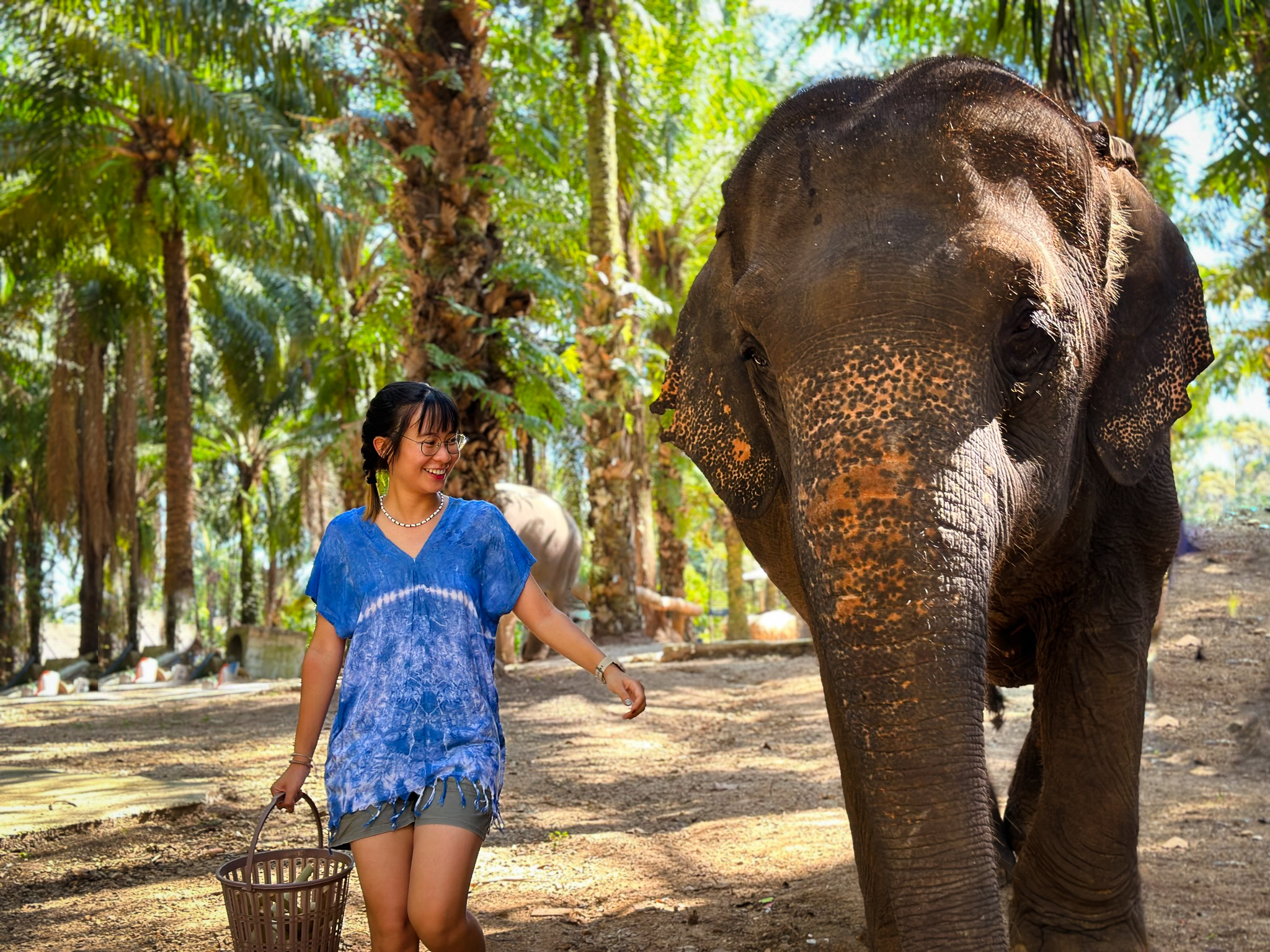
Krabi Elephant Shelter stands out as a premier destination for elephant tourism in Thailand for several compelling reasons:
- Ethical Practices: The shelter prioritizes the welfare of the elephants, offering a humane and sustainable approach to elephant tourism.
- Educational Experience: Visitors have the opportunity to learn about elephant conservation efforts and the importance of protecting these magnificent creatures.
- Unforgettable Memories: Interacting with elephants in their natural habitat and participating in activities like washing them creates lifelong memories and fosters a deep appreciation for wildlife.
In conclusion, the practice of washing elephants offers far more than just a fleeting moment of amusement; it provides a gateway to a world of wonder, compassion, and connection. Whether you’re drawn to the cultural heritage of Thailand, the scientific marvels of elephant biology, or the ethical imperatives of responsible tourism, washing elephants at Krabi Elephant Shelter invites you to embark on a journey of discovery, enlightenment, and transformation. So come, immerse yourself in the magic of elephant encounters, and let the gentle giants of Thailand leave an indelible imprint on your heart and soul.
Frequently asked questions
why do people wash elephants?
wash elephants serve both practical and symbolic purposes. It helps to keep the elephants clean and healthy by removing dirt, mud, and parasites from their skin. Additionally, it holds cultural significance in many countries, representing purification, renewal, and respect for nature.
Is Wash Elephants harmful to them?
When done responsibly and ethically, Wash Elephants is not harmful to them. It’s essential to use gentle techniques and eco-friendly products to ensure the elephants’ well-being and minimize any potential stress or discomfort.
How often do elephants need to be washed?
The frequency of washing elephants depends on various factors, including the climate, environment, and individual needs of the elephants. In hot and humid regions like Thailand, elephants may benefit from regular baths to help them stay cool and comfortable.
Can visitors participate in Wash Elephants?
Yes, many elephant sanctuaries and shelters offer visitors the opportunity to participate in Wash Elephants as part of an immersive and educational experience. These experiences typically prioritize the well-being of the elephants and guide how to interact with them respectfully.
What should I wear when Wash Elephants?
It’s essential to wear comfortable and lightweight clothing that you don’t mind getting wet or dirty. Avoid wearing anything with sharp or protruding accessories that could potentially harm the elephants or snag on their skin.
Are there any age restrictions for participating in Wash Elephants activities?
Age restrictions may vary depending on the specific policies of the elephant sanctuary or shelter. In general, children should be supervised by adults and follow any safety guidelines provided by the staff.
Can I take photographs while Wash Elephants?
Many elephant sanctuaries allow visitors to take photographs during Wash Elephants activities. However, it’s essential to respect the privacy and comfort of the elephants and follow any guidelines provided by the staff regarding photography.
How can I ensure that the elephant sanctuary I visit practices ethical tourism?
Researching the sanctuary’s reputation, reviews, and conservation practices is essential before visiting. Look for establishments that prioritize elephant welfare, conservation efforts, and community engagement. Sanctuaries that are transparent about their operations and conservation goals are typically more likely to adhere to ethical tourism standards.
What other activities can I enjoy at an elephant sanctuary besides Wash Elephants?
In addition to Wash Elephants, many sanctuaries offer a variety of other activities, such as elephant feeding, walking tours, educational presentations, and opportunities to observe elephants in their natural habitat. These experiences provide visitors with a holistic understanding of elephant conservation and welfare.
How can I support elephant conservation efforts beyond visiting a sanctuary?
There are many ways to support elephant conservation efforts, including donating to reputable organizations, volunteering your time and skills, advocating for stronger wildlife protection laws, and spreading awareness about the importance of ethical tourism and conservation. Every contribution, no matter how small, can make a difference in protecting these incredible creatures for future generations.


